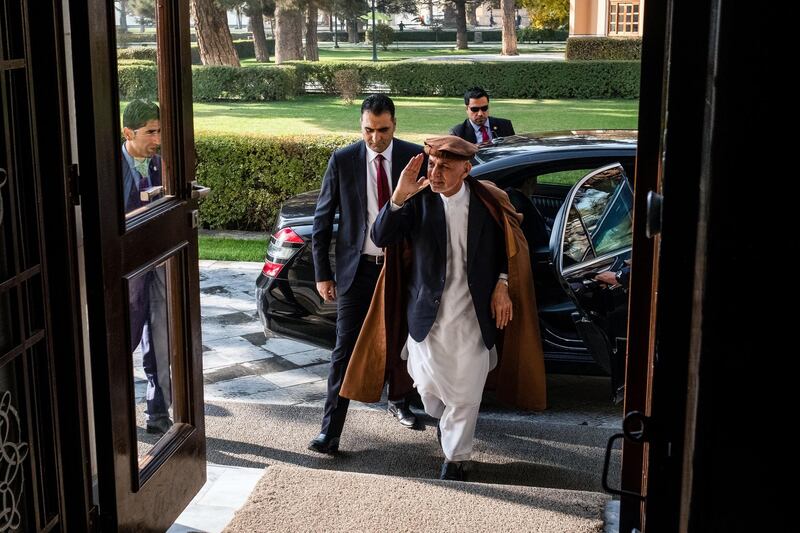Afghan President Ashraf Ghani will seek re-election in 2019, his office announced Saturday, as potential rivals begin jockeying for the country's top job ahead of the ballot.
President Ghani, who was elected in a fraud-tainted poll in 2014 that was only resolved in a US-brokered power-sharing deal, is expected to present himself to war-weary voters as the candidate who can end the 17-year conflict.
The acerbic academic, who has a reputation for shouting at subordinates and micromanaging the unity government, will try to capitalise on renewed US-led efforts to engage the Taliban in peace talks, which are showing tentative signs of bearing fruit.
"I can confirm that President Ghani is seeking re-election next year," presidential palace spokesman Shah Hussain Murtazawi told AFP.
President Ghani, who chose the widely feared ethnic Uzbek leader Abdul Rashid Dostum as his first running mate in the 2014 election, has not yet announced who he will pick this time round.
It also is not certain who will challenge President Ghani in the April 20 ballot.
Chief Executive Abdullah Abdullah, Afghanistan's equivalent of prime minister, and former national security adviser Mohammad Haneef Atmar, who quit in August, are among potential contenders.
Former Balkh provincial governor Atta Mohammad Noor, whose refusal to stand down from his position sparked a months-long political crisis for President Ghani, has previously expressed interest in the job.
Nominations open on November 10, the same day that the embattled Independent Election Commission is scheduled to release the results of last month's shambolic parliamentary poll.
_______________
Read more:
'Father of the Taliban' cleric Maulana Samiul Haq killed
Afghan army helicopter crashes killing up to 25
‘Taliban five’ released from Guantanamo join group's Qatar political office
_______________
President Ghani, an ethnic Pashtun, will need more than the support of Afghanistan's largest ethnic group if he is to succeed at the ballot box and he has already started trying to win over rival ethnicities.
Vice President Dostum's controversial return from exile in July was interpreted as an attempt by President Ghani to secure votes from the minority group.
Mr Ghani's presidency has been marred by growing militant violence, record-high civilian casualties, political infighting and deepening ethnic divisions.
He took office in 2014 as US-led NATO combat troops withdrew from the country, sparking a resurgence in the Taliban which also coincided with the emergence of ISIS in the region.
In February, under growing pressure from the international community which provides critical financial and military backing to the government, President Ghani made a peace offer to the Taliban.
That was followed in June by an unprecedented ceasefire between Afghan troops and Taliban fighters that lasted three days and spurred hopes that peace was possible.
Taliban representatives have met with US officials at least twice in Qatar in recent months, most recently on October 12 with newly appointed US peace envoy Zalmay Khalilzad.





